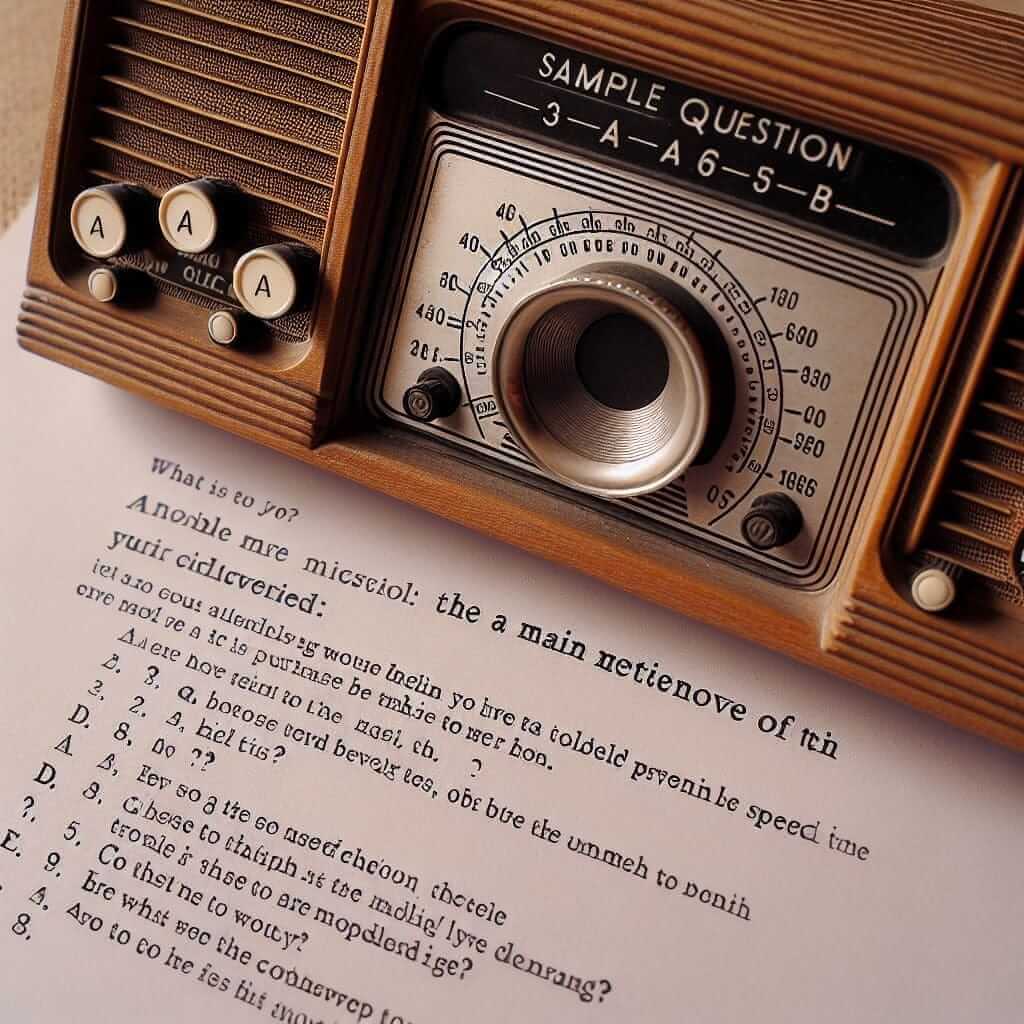Multiple choice questions are a common question type found in the IELTS Listening test. They aim to assess your ability to understand specific information and detailed facts presented in spoken English. While they may seem straightforward, multiple choice questions often include distractors – answer choices that are designed to seem plausible but are incorrect.
This article provides a comprehensive guide on how to effectively tackle multiple choice questions in the IELTS Listening test. As an IELTS instructor with over 20 years of experience, I will equip you with proven strategies to boost your confidence and performance.
Understanding Multiple Choice Questions
In the IELTS Listening test, multiple choice questions typically present a question followed by three or four possible answers (A, B, C, or D). You need to choose the option that best answers the question based on the information provided in the audio recording.
These questions assess your ability to:
- Comprehend specific details: You might be asked about dates, times, names, or other specific pieces of information.
- Identify the main idea: Some questions require you to grasp the overall message or the key point being conveyed.
- Understand the speaker’s opinion or attitude: These questions often involve inferring the speaker’s feelings or stance on a particular topic.
Strategies for Success
Here are some effective strategies to help you answer multiple choice questions correctly:
1. Pre-reading is Key
- Read the questions and answer choices carefully before the audio starts. This gives you a clear idea of what to listen for.
- Underline keywords in both the questions and answer choices. These keywords act as signposts directing you to the relevant information in the audio.
2. Active Listening is Crucial
- Focus intently on the audio, paying attention to changes in speaker, tone, and emphasis.
- Don’t get bogged down by unfamiliar words. Focus on understanding the overall meaning.
- Anticipate possible answers as you listen. This helps you stay engaged and focused.
3. Beware of Distractors
- Distractors are designed to mislead you. They may contain words or phrases from the audio but present them in an incorrect context.
- Be wary of answer choices that sound logical but may not be directly supported by the information in the audio.
- Listen for qualifying words like “always,” “never,” “sometimes,” “most,” and “few.” These words can significantly alter the meaning of a sentence.
4. Manage Your Time Wisely
- You have limited time to read, listen, and answer.
- Don’t dwell too long on a single question. If you are unsure, make an educated guess and move on.
- Use any remaining time to check your answers and ensure you have selected the best option for each question.

Example from IELTS Listening Test
Question:
What is the main reason the speaker chose to study photography?
Answer Choices:
A. To travel the world
B. To express his creativity
C. To pursue a childhood dream
Audio Script:
“I’ve always been fascinated by capturing moments in time. Even as a kid, I was the one with a camera, taking pictures of everything. It wasn’t until recently, though, that I decided to pursue photography seriously. I realized it was the perfect outlet for my creativity.”
Answer:
The correct answer is B. To express his creativity.
Explanation:
The speaker clearly states that he chose to study photography because it was “the perfect outlet for my creativity.” While the speaker may also enjoy traveling (option A), and photography might have been a childhood interest (option C), the audio explicitly identifies his desire to express his creativity as the primary reason for pursuing photography.
Tips for Success
- Practice regularly: Familiarize yourself with the format of multiple choice questions and the different types of distractors used.
- Improve your vocabulary: A strong vocabulary is essential for understanding the audio and identifying keywords.
- Develop your listening skills: Listen to a variety of English materials, such as podcasts, news reports, and documentaries.
- Seek feedback: Ask a teacher or tutor to review your answers and provide feedback on your listening comprehension skills.
Conclusion
Mastering multiple choice questions in the IELTS Listening test requires a combination of focused preparation and effective test-taking strategies. By implementing the advice outlined in this article, you can enhance your listening comprehension skills, approach these questions with confidence, and achieve your desired IELTS score. Remember that consistent practice and a strategic approach are key to success.